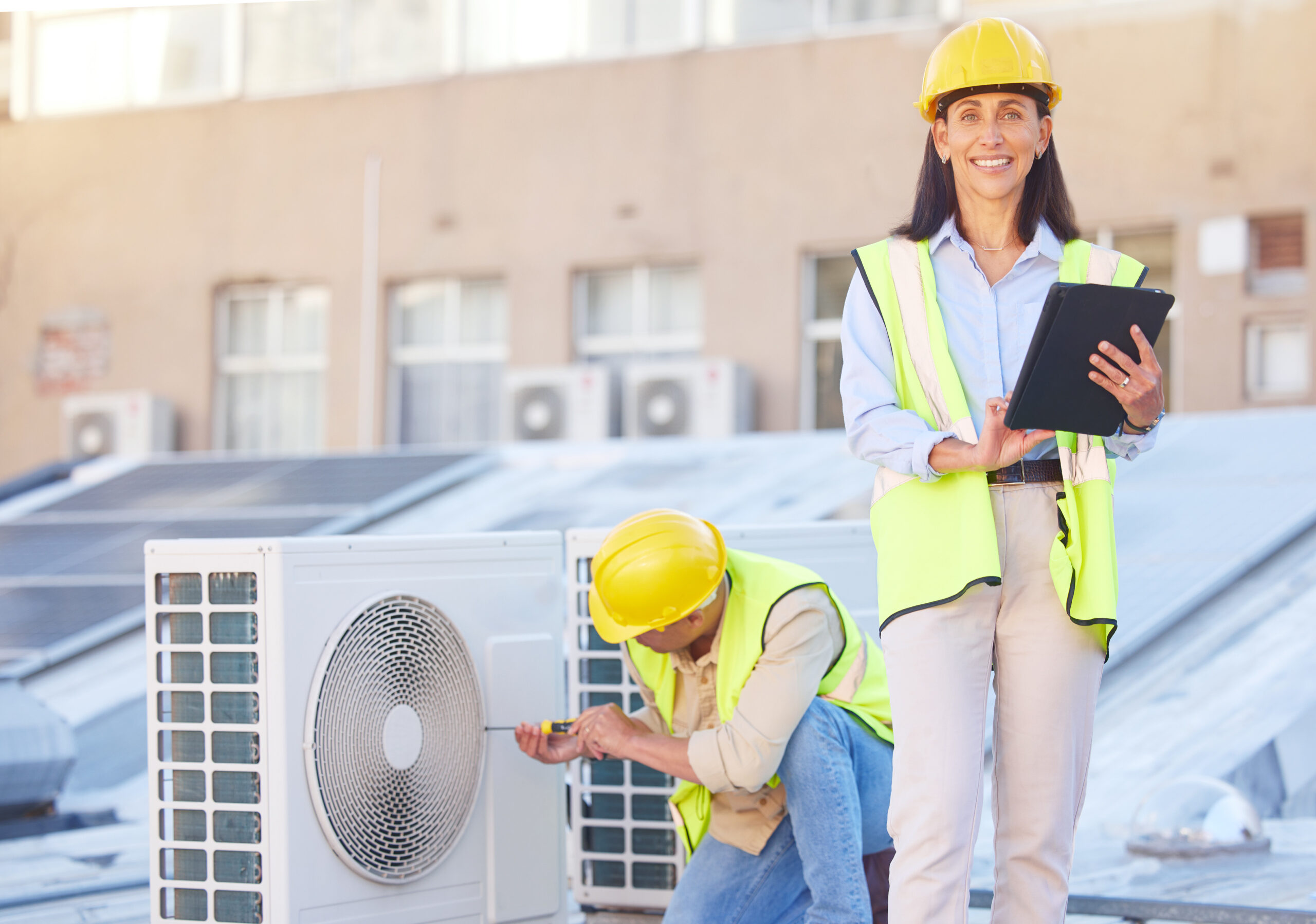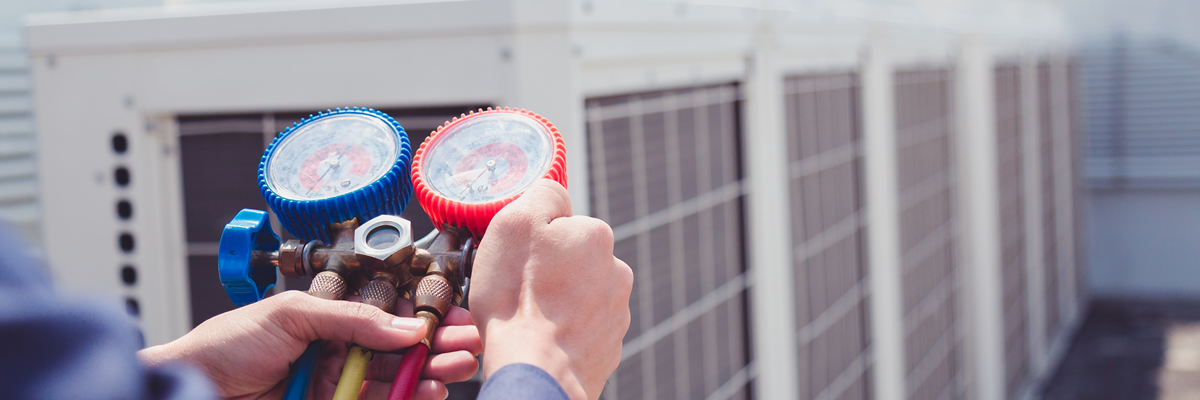Elevate Your Home’s Efficiency with Routine heat pump service
Elevate Your Home’s Efficiency with Routine heat pump service
Blog Article
Selecting In Between a Heatpump and Heater: Trick Considerations for Your Cooling And Heating Demands
When assessing heating choices for heating and cooling requires, the decision in between a heat pump and a heater can be complicated. Each system supplies unique advantages customized to certain climates and power performance objectives. Comprehending these differences is necessary for making an educated choice. Trick aspects such as installation prices and environmental influence additionally complicate the selection procedure. Which option absolutely lines up with one's comfort and sustainability choices? The following areas will explore these factors to consider carefully.
Understanding Warmth Pumps: Just How They Work and Their Advantages
While several house owners think about numerous heating choices, understanding how heatpump function and their benefits can considerably influence their decision. Heatpump run by transferring warmth as opposed to generating it. In the winter season, they draw out heat from the outdoors air or ground and move it indoors, while in the summertime, they reverse this procedure, cooling down the home by removing warm outside. This twin functionality makes them flexible for year-round climate control.One of the key benefits of heatpump is their power efficiency. They utilize substantially much less electrical power compared to conventional furnace, potentially causing reduced energy expenses (ductless mini splits). In addition, heatpump have a smaller carbon footprint, making them an eco-friendly option. They likewise call for much less upkeep than conventional systems, adding to long-lasting cost savings. On the whole, understanding the auto mechanics and benefits of heatpump can aid home owners make informed decisions regarding their heating and cooling down demands
Checking Out Heating Systems: Types, Procedure, and Benefits
Heating systems can be found in numerous kinds, consisting of gas, electrical, and oil designs, each with unique functional mechanisms. Recognizing these distinctions is necessary, as they influence performance and home heating efficiency. Furthermore, furnaces offer numerous benefits, such as regular warm output and integrity in chillier climates.
Kinds of Heaters
Heater can vary considerably in design and procedure, with heating systems being a prominent selection among house owners. There are a number of kinds of heating systems, each using different gas sources and innovations. Gas heating systems are typical, leveraging natural gas to produce warm efficiently. Electric heating systems, on the various other hand, use electrical resistance to produce warmth, frequently favored for their uncomplicated setup. Oil furnaces, while much less common, work in areas with minimal gas accessibility (heat pump installation ooltewah tn). Furthermore, condensing furnaces optimize power effectiveness by reusing and catching exhaust gases. Each kind operates via a system of heat exchangers and ductwork to disperse cozy air throughout a home. Comprehending the differences between these heating system kinds is necessary for informed a/c choices
Advantages of Heaters
For home owners looking for dependable warmth throughout cold months, the advantages of furnaces are significant. Heating systems provide constant heating, making certain even temperatures throughout the home. They are especially reliable in severe cool, frequently outmatching heat pumps in freezing conditions. Numerous types, including gas, electrical, and oil furnaces, offer flexibility to meet diverse requirements and preferences.Furnaces likewise tend to have reduced preliminary installation expenses compared to heatpump, making them a much more available option for lots of. Their durable design adds to a longer lifespan, with many units lasting over 15 years with proper maintenance. Additionally, contemporary heating systems are frequently geared up with innovative innovation for enhanced efficiency, which can bring about decreased energy bills. Overall, furnaces stay a reputable selection for reliable home heating.

Energy Efficiency: Contrasting Heat Pumps and Furnaces
When comparing energy effectiveness between heatpump and heaters, the Seasonal Energy Effectiveness Proportion (SEER) plays a vital duty in establishing performance. Additionally, a functional cost evaluation discloses the lasting monetary effects of each system. Understanding these variables can direct home owners in making informed decisions about their home heating remedies.
Seasonal Power Efficiency Proportion
Power effectiveness plays a vital function in the decision-making process in between warmth pumps and heaters, particularly when taking into consideration the Seasonal Power Effectiveness Ratio (SEER) This statistics actions the cooling performance of heatpump over a whole cooling season, providing a standardized method to examine efficiency. Higher SEER ratings indicate greater energy effectiveness, converting to reduced power usage and minimized energy expenses. On the other hand, heaters are usually examined utilizing the Yearly Gas Utilization Efficiency (AFUE) rating, which mirrors heating efficiency. When comparing these two systems, property owners need to focus on SEER ratings for warm pumps, as they straight effect total energy financial savings and ecological sustainability. A comprehensive understanding of SEER can notably influence the long-term satisfaction and cost-effectiveness of the chosen heating and cooling option.
Operational Cost Evaluation
Understanding the operational prices associated with warm pumps and heating systems is vital for homeowners examining their options. Heatpump typically provide higher power effectiveness, transforming electric energy into warmth with marginal waste. This causes lower month-to-month utility costs, particularly in modest environments. Conversely, typical furnaces, particularly gas versions, may have lower ahead of time expenses yet can incur greater operational costs over time because of fuel rates and efficiency ratings.Moreover, warmth pumps can function as both home heating and cooling down systems, possibly reducing the requirement for different a/c devices. While first investments for heatpump may be greater, their lasting savings in energy effectiveness can make them an extra cost-efficient option for many homes. Cautious analysis of regional power prices is necessary to figure out the most effective option.
Setup Prices: What to Anticipate for Each Heater
Setup costs for heating unit can vary significantly in between heat pumps and furnaces, influencing property owners' decisions. Heatpump usually have higher upfront installation expenses, commonly varying from $3,500 to $8,000, depending on the device size and intricacy of installment. This consists of the exterior device, interior handling system, and essential ductwork alterations. Conversely, heaters often tend to have reduced first costs, averaging in between $2,500 and $6,000, which can be appealing for budget-conscious house owners. Setup expenditures can raise if considerable ductwork is required.Moreover, the selection of fuel type for heaters-- all-natural gas, lp, or electrical-- can additionally affect installation costs. While heatpump offer power performance, their first investment might hinder some customers. Eventually, assessing installment prices together with long-term cost savings and effectiveness will certainly help property owners in making informed choices about their furnace.
Environment Considerations: Which System Performs Better in Your Location
Exactly how do climate problems influence the effectiveness of heater? The performance of warmth pumps and heaters can differ greatly depending on the regional environment. In moderate climates, heat pumps stand out by efficiently transferring warmth from the outside air, making them an energy-saving alternative. Nevertheless, their performance diminishes in very cold temperatures, where they might struggle to draw out adequate heat. Conversely, heaters, particularly try this website gas designs, give trusted and constant heat no matter exterior problems, making them better in colder regions.In locations that experience milder wintertimes, heatpump can operate effectively year-round, giving both cooling and heating. On the other hand, areas with severe winters months typically take advantage of the effectiveness of furnaces. Inevitably, comprehending the neighborhood climate is essential when deciding between a heat pump and a furnace, as it straight affects their functional performance and total performance.
Upkeep Demands: Long-Term Look After Heat Pumps vs. Furnaces
While both warm pumps and furnaces call for routine maintenance to guarantee peak efficiency, their certain demands and treatment routines differ significantly. Heaters typically require much less frequent focus, with annual inspections sufficing to check for gas leakages, clean filters, and examine general capability. Their less complex layout usually permits straightforward repairs.In contrast, heatpump require biannual upkeep as a result of their twin function in heating & cooling. This includes cleaning coils, checking cooling agent degrees, and making sure that both the indoor and outside devices work at their ideal. Additionally, heatpump maintenance often includes even more complex elements, making specialist maintenance essential.Neglecting upkeep can bring about decreased performance and enhanced energy expenses for both systems. Inevitably, homeowners must consider these long-lasting treatment demands when choosing between a warm pump and a heater, as aggressive maintenance can prolong the life-span and efficiency of either system substantially.
Environmental Impact: Selecting a Sustainable Home Heating Alternative
The ecological influence of heater is a critical analysis for property owners looking for lasting choices. Heat pumps are usually a lot more energy-efficient than conventional heating systems, as they transfer heat instead of generate it, significantly minimizing carbon discharges. By making use of renewable resource resources, such as air-source or geothermal warmth pumps, home owners can further lessen their ecological footprint.On the other hand, gas furnaces release greenhouse gases and add to air contamination, though they commonly supply greater heat output. Developments in technology have led to the growth of high-efficiency heating systems that reduce emissions.Ultimately, choosing a home heating system includes considering effectiveness versus ecological influence. Property owners are urged to assess neighborhood power resources and incentives for sustainable systems, guaranteeing an option that aligns with both individual convenience and my blog environmental duty. The decision check this site out influences not only immediate convenience but also long-lasting sustainability and environmental health and wellness.
Often Asked Questions
How Much Time Do Heat Pumps and Furnaces Normally Last?
The lifespan of heat pumps commonly ranges from 15 to twenty years, while heaters can last between 15 to thirty years. Normal maintenance substantially impacts their longevity and effectiveness in giving home heating solutions.
Can I Utilize a Heatpump in Incredibly Cold Climates?
Heatpump can operate in very cold environments, however their efficiency lessens as temperature levels drop. In such conditions, supplementary home heating resources may be necessary to keep comfy indoor temperature levels and guarantee peak performance.

What Is the Sound Level of Warm Pumps Versus Furnaces?
The sound degrees of warm pumps and heating systems vary considerably. Normally, warmth pumps operate even more quietly than conventional furnaces, making them preferable for those conscious appear, while furnaces might produce louder functional noises throughout heating cycles.
Are Heat Pumps Suitable for Both Heating & Cooling?
Warmth pumps are without a doubt appropriate for both heating and air conditioning (heat pump replacement ooltewah tn). They function by moving heat, offering efficient temperature control year-round, making them a versatile selection for home owners looking for an all-in-one heating and cooling option
What Size Heater Do I Required for My Home?
Determining the appropriate dimension furnace for a home needs examining factors such as square video footage, insulation top quality, neighborhood environment, and the home's format. Consulting a professional can assure an accurate analysis and perfect convenience. Warmth pumps normally supply higher energy efficiency, transforming electrical energy into warmth with minimal waste. In modest climates, warmth pumps succeed by successfully transferring warm from the outdoors air, making them an energy-saving option. On the other hand, heaters, particularly gas designs, give reputable and regular warmth regardless of outside conditions, making them more effective in colder regions.In locations that experience milder winter seasons, warmth pumps can operate efficiently year-round, providing both home heating and air conditioning. Heat pumps are typically more energy-efficient than typical heating systems, as they move warmth instead than generate it, significantly minimizing carbon exhausts. By using sustainable energy sources, such as geothermal or air-source warm pumps, house owners can additionally lessen their ecological footprint.On the other hand, natural gas furnaces release greenhouse gases and contribute to air pollution, though they often offer higher warmth result.
Report this page